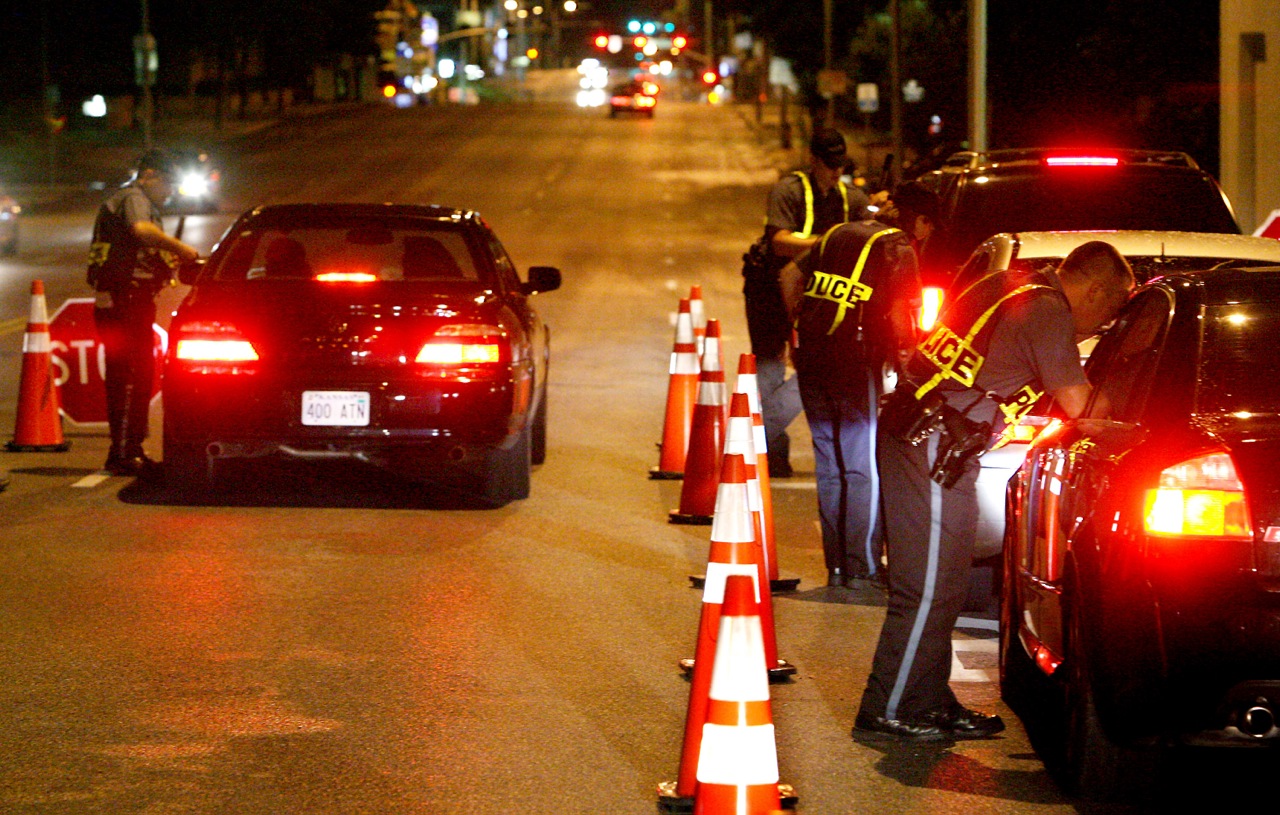Articles Tagged with DUI Arrest
What are the most common ways people in Nevada get arrested for DUI?
Most Common Ways People Get Arrested for DUI: Traffic Stops, Accidents, and More
Driving under the influence (DUI) is one of the most frequently charged offenses in Nevada, especially in busy areas like Las Vegas, where tourism and nightlife make alcohol consumption common. However, most DUI arrests don’t happen because someone is pulled over randomly. Instead, they typically result from specific behaviors or circumstances that catch the attention of law enforcement. Understanding the most common reasons people get arrested for DUI can help you avoid these situations and recognize when it’s time to seek legal help.
This blog explores the most frequent causes of DUI arrests, from traffic stops to accidents, and highlights how Attorney Josh Tomsheck can assist if you find yourself facing DUI charges in Nevada.
What to Do If You Are Pulled Over for a DUI in Nevada: A Step-by-Step Guide
What to Do If You Are Pulled Over for a DUI in Nevada: A Step-by-Step Guide
Being pulled over for a DUI in Nevada can be a daunting and stressful experience. The decisions you make during this time can significantly impact your legal situation. This guide will walk you through the essential steps to take if you are stopped on suspicion of driving under the influence, emphasizing your rights and the importance of having an experienced attorney, like Josh Tomsheck, on your side.
Step 1: Stay Calm and Pull Over Safely
Traveling to Canada After a DUI Conviction in Nevada: Challenges and Solutions
Traveling to Canada After a DUI Conviction in Nevada: Challenges and Solutions
For many people, traveling to Canada from the United States is a routine matter, whether for business, tourism, or visiting family. However, a DUI conviction in Nevada can complicate this seemingly straightforward process. Canada has strict entry regulations for individuals with criminal records, including DUI convictions, which are considered serious offenses under Canadian law. Understanding the implications of a DUI on travel to Canada and knowing the available options for overcoming these barriers is crucial for anyone with a DUI conviction planning to visit the country.

Why Canada Restricts Entry for DUI Convictions
DUI Arrests can Happen to Anyone: High Profile DUI Arrests in the News
High-Profile DUI Arrests in the News: Why a Qualified DUI Defense Lawyer is Essential
DUI (Driving Under the Influence) charges are serious offenses that can affect anyone, regardless of fame or status. While DUI arrests can be life-altering for the average person, when public figures and celebrities are involved, the consequences are amplified by media coverage and public scrutiny. High-profile DUI arrests bring to light not only the legal consequences of impaired driving but also the importance of securing a highly skilled DUI defense attorney.
This blog post will explore three recent high-profile DUI arrests, illustrating how these cases were handled and highlighting the need for an experienced DUI lawyer to protect both your legal rights and your reputation. We will conclude by discussing why having an experienced DUI defense attorney like Josh Tomsheck is vital if you face DUI charges in Las Vegas.
Crime Rates and Warm Weather: A Closer Look at Summer 2024 in Las Vegas
Crime figures rise and fall for a number of reasons. One common connection between the level of reported crimes is the weather. Crime reports commonly fluctuate season to season and summer months, particularly in places like Las Vegas, see notable changes in the types and frequency of criminal offenses.
Crime rates in Las Vegas are up during the warm summer of 2024 in Las Vegas, which is reflective of general trends of rising crime during warmer months. The Las Vegas Metropolitan Police Department (LVMPD) has reported a notable uptick in violent crime, particularly in densely populated areas like the Strip corridor and Fabulous Fremont Street area downtown.
According to recent news reporting by Nevada Public Radio (KNPR), year-over-year crime in Las Vegas has also seen a 14% rise, and the city’s violent crime rate is now 40% higher than the national average. The connection between crime and temperature has been the subject of numerous studies. One well-known study that establishes the link between warmer weather and increased crime rates is the “Heat and Violence” study conducted by Craig A. Anderson and his colleagues, published in the journal Current Directions in Psychological Science (2001). This study examined the relationship between temperature and aggression, proposing that higher temperatures are linked to increased aggressive behavior, which in turn can lead to higher rates of violent crime.
Changes in Nevada DUI laws can impact your case
The laws in Nevada are constantly being amended or changed, both by courts and lawmakers. It is imperative, that when you are charged with a DUI in Nevada, you have a lawyer who is up to date on changes in the law. In order to have the best lawyer for your DUI charge, you must have an attorney who is aware of the current state of DUI law and how best to use those laws to build your defense.
A good example of a change in the law that those charged with a DUI should be aware of is Assembly Bill 67 (AB67). This new law was voted into place unanimously and has many significant changes for those charged with a DUI in Nevada.
One main component of the bill is that removes the antiquated legal principle of “implied consent” to allow law enforcement to take a forensic blood or breath sample. While a Nevada driver can still consent to either test, if a driver refuses to voluntarily to take a test, a warrant is now required before the blood can be taken. Moreover, if a driver refuses to submit to a test, his or her license is subject to revocation for a period of one (1) year following the refusal.
Additionally, prior to AB 67, a legal document known as an “Affidavit” allowed to be submitted in trial to attempt to prove a DUI charge unless the Defendant established a “substantial and bona fide” dispute as to the facts in the Affidavit prior to Trial. Following AB 67, and Affidavit to prove facts at Trial is not admissible if the Defendant (or his lawyer) objects 10 or more days prior to Trial. This requires the prosecutor to bring in the witness, instead of a sheet of paper, to prove their case and allows for a defense attorney to thoroughly cross examine the witness on the content of their testimony.
“DUI Checkpoints in Nevada: Can the Police do that?”
It is no secret that one of the most aggressively investigated and charged crimes in Nevada is Driving Under the Influence, also known as “DUI.” One of the more commonly used techniques to identify and arrest alleged drunk drivers is the “DUI checkpoint.”
When the topic of DUI arrests and DUI checkpoints is brought up to me in conversation, one of the more common questions I am asked is “wait a second…how are DUI checkpoints legal?” And, “are these DUI check points even constitutional?”
While there are lots of variables and the individual facts of each case are unique, in most situations, if a member of law enforcement desires to stop a vehicle driving on a roadway, that law enforcement officer needs to have “probable cause” … or a belief that it is likely that a crime has been committed and that the driver of that vehicle committed that crime. The most common example is when a police officer conducts a traffic stop and pulls someone over for the commission of a moving violation, or “traffic offense” in the officer’s presence. This gives the officer “probable cause” to stop the driver.
In the case if a DUI checkpoint however, the situation is different. While law enforcement does stop drivers at checkpoints, this method of stopping drivers does not require probable cause as does the typical traffic stop. Continue reading ›
 Las Vegas DUI Attorney Blog
Las Vegas DUI Attorney Blog


